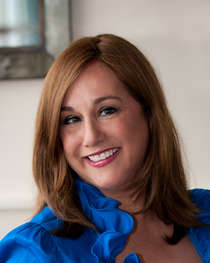AUTHOR’S CORNER SONIA TAITZ
(Photo by H&H Photographers from author’s website)
Author Sonia Taitz positively brims with talent.
Her works include: 1) MOTHERING HEIGHTS; 2) IN THE KING’S ARMS; 3) THE WATCHMAKER’S DAUGHTER; and 4) DOWN UNDER.
Sonia was born in New York to two concentration camp survivors. Her coming-of-age memoir THE WATCHMAKER’S DAUGHTER is an enchantingly-written, heartfelt portrait of her parents during the years they raised her.
Recently, I caught up with Sonia for this interview.
1) What have been some of the most gratifying reactions to your memoir THE WATCHMAKER’S DAUGHTER?
I am always surprised and delighted to learn that there is a wide audience for this book. Jewish people, of course, respond to it – but so does the general audience, which seems to find common ground with this daughter of immigrants who struggles to find her own way while being loyal to the past. I’ve had some of the best reactions from audiences that included priests and nuns. Perhaps the most gratifying comments came from a young German girl, who in a letter told me that my book had touched her heart. Not only did her country’s past become clearer to her, but she felt that in many ways she identified with me and the challenges of my life.
2) Did writing THE WATCHMAKER’S DAUGHTER help you to come to terms with the challenges of having émigré parents who were Holocaust survivors?
The actual writing process was painful. Over the time that I wrote it, I felt I had to descend into my parents’ traumatic past and see the world as they had, in their worst moments. And I couldn’t write about them while they were still alive – I felt that was presumptuous. But years after their deaths, while writing this book, I found an arc to their story (and mine). This has brought me some catharsis.
3) Can you share a few things about your mother and father not found in THE WATCHMAKER’S DAUGHTER?
My father was an almost mythically powerful man, one who thought deeply and spoke slowly. But he also had an impish sense of humor. I remember him knocking on my door, and as I asked who it was, replying “Maintenance.” He had come to fix something in my room. The combination of that lowly function, his thick accent, and his basso voice made us both burst out laughing.
My mother was, in some ways, a person who kept her inner self locked away. Although she seemed cheerful and always busy as a bee, there was a depth to her that this book only managed to suggest – and a touch of steel. Also, she was a musical virtuoso, though few people heard her play. I am as much the pianist’s daughter as the watchmaker’s.
4) In your observation, have the lessons of the Holocaust been adequately learned in Germany and Austria? And what about elsewhere?
I feel they are well-known in Germany, less so in Austria. I travelled to Vienna recently, and felt a chill – a cool refusal to look at its own part in this tragedy. Touring my parents’ original country, Lithuania, I felt something worse at times – a sense of covering up, rationalizing, and sometimes even painting the Jews, still, as foreign and threatening. But that was in 2002. I hear things have changed for the better, and I hope they have. In fact, there is a thriving Yiddish Institute at the University of Vilnius.
5) Which books lately have been of greatest interest for you?
I’ve loved Paul Kalanithi’s WHEN BREATH BECOMES AIR – a young doctor’s look at the medical calling, and his own last year of life with Stage 4 lung cancer. I guess I look for the meanings in tragic events. As Viktor Frankl said, they elevate suffering into something beautiful. This book did.
I’m also drawn again to the classics, and am re-reading Thomas Mann’s THE MAGIC MOUNTAIN with far more pleasure than it originally gave me as a junior in college.
6) Tell me about your next book, GREAT WITH CHILD.
GREAT WITH CHILD tells the story of a driven legal associate, the daughter of immigrants, who is, after seven years, on the verge of making partner. When she accidentally becomes pregnant, she is forced to recalibrate her life. As a former lawyer, I recognize her drive and sometimes blind ambition. And as a mother of three, I recognize the gradual enrichment of her moral compass, and the growth of her soul.
Sonia Taitz’s website is here.
